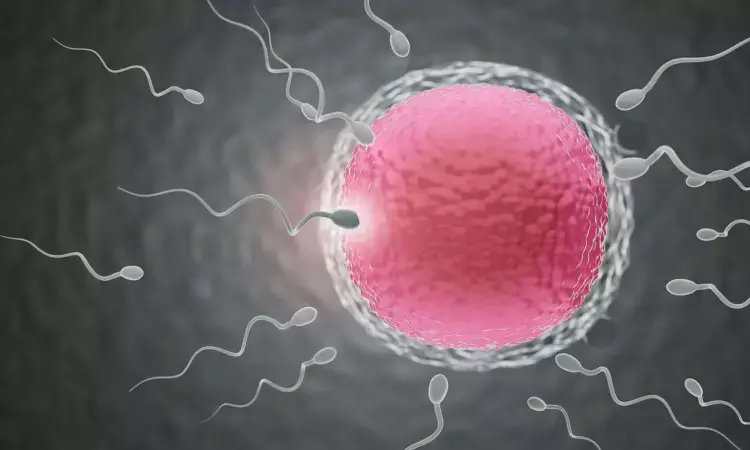- Home
- Medical news & Guidelines
- Anesthesiology
- Cardiology and CTVS
- Critical Care
- Dentistry
- Dermatology
- Diabetes and Endocrinology
- ENT
- Gastroenterology
- Medicine
- Nephrology
- Neurology
- Obstretics-Gynaecology
- Oncology
- Ophthalmology
- Orthopaedics
- Pediatrics-Neonatology
- Psychiatry
- Pulmonology
- Radiology
- Surgery
- Urology
- Laboratory Medicine
- Diet
- Nursing
- Paramedical
- Physiotherapy
- Health news
- Fact Check
- Bone Health Fact Check
- Brain Health Fact Check
- Cancer Related Fact Check
- Child Care Fact Check
- Dental and oral health fact check
- Diabetes and metabolic health fact check
- Diet and Nutrition Fact Check
- Eye and ENT Care Fact Check
- Fitness fact check
- Gut health fact check
- Heart health fact check
- Kidney health fact check
- Medical education fact check
- Men's health fact check
- Respiratory fact check
- Skin and hair care fact check
- Vaccine and Immunization fact check
- Women's health fact check
- AYUSH
- State News
- Andaman and Nicobar Islands
- Andhra Pradesh
- Arunachal Pradesh
- Assam
- Bihar
- Chandigarh
- Chattisgarh
- Dadra and Nagar Haveli
- Daman and Diu
- Delhi
- Goa
- Gujarat
- Haryana
- Himachal Pradesh
- Jammu & Kashmir
- Jharkhand
- Karnataka
- Kerala
- Ladakh
- Lakshadweep
- Madhya Pradesh
- Maharashtra
- Manipur
- Meghalaya
- Mizoram
- Nagaland
- Odisha
- Puducherry
- Punjab
- Rajasthan
- Sikkim
- Tamil Nadu
- Telangana
- Tripura
- Uttar Pradesh
- Uttrakhand
- West Bengal
- Medical Education
- Industry
Kidney function impairment associated with male infertility

Finding in new research published in the Andrology supports the emerging picture of general poor health and significantly impaired kidney function associated with male infertility.
They aimed to i) assess kidney function in men presenting for primary couple's infertility compared to fertile men; and, ii) assess kidney function impairment toward sperm quality in infertile men.
In this case-control study 387 consecutive white-European infertile men were matched by age with 134 same-ethnicity fertile men. Complete clinical and laboratories data were available for each patient. The Chronic Kidney Disease Epidemiology Collaboration (CKD-EPI) function was used for estimated glomerular filtration rate (eGFR) calculation. Kidney functional impairment was defined as an eGFR<90 ml/min/1.73m2, according to the Kidney Disease Improving Global Outcomes criteria. Multivariable logistic regression analysis was used to i) assess the association between kidney function impairment and infertility status; and, ii) investigate the association between kidney function and semen analysis abnormalities in infertile men.
Results
After matching, 34 (8.8%) infertile men depicted at least a mild unknown impairment of kidney function compared to only 4 (3%) fertile men, with 4 (3%) of the infertile presenting with an overt kidney function impairment (eGFR<60 ml/min /1.73m2). There were no differences in terms of age, BMI and rate of comorbidities between the two groups (all p>0.05). After adjusting for major confounders, infertility status was associated with a higher risk of reduced eGFR (OR 3.20; 1.21-5.2; p = 0.002). Conversely, eGFR was not associated with sperm abnormalities in infertile men.
Mild kidney function impairment was found in 9% of asymptomatic and unaware men presenting for primary couple's infertility investigation. This novel finding corroborates growing data on a significant association of male infertility with a poorer overall male health status and the need for tailored preventive strategies.
Reference:
Fallara, G, Capogrosso, P, Pozzi, E, et al. Kidney function impairment in men with primary infertility: A case-control analysis. Andrology. 2023; 00- 00. https://doi.org/10.1111/andr.13425
Dr. Shravani Dali has completed her BDS from Pravara institute of medical sciences, loni. Following which she extensively worked in the healthcare sector for 2+ years. She has been actively involved in writing blogs in field of health and wellness. Currently she is pursuing her Masters of public health-health administration from Tata institute of social sciences. She can be contacted at editorial@medicaldialogues.in.
Dr Kamal Kant Kohli-MBBS, DTCD- a chest specialist with more than 30 years of practice and a flair for writing clinical articles, Dr Kamal Kant Kohli joined Medical Dialogues as a Chief Editor of Medical News. Besides writing articles, as an editor, he proofreads and verifies all the medical content published on Medical Dialogues including those coming from journals, studies,medical conferences,guidelines etc. Email: drkohli@medicaldialogues.in. Contact no. 011-43720751


